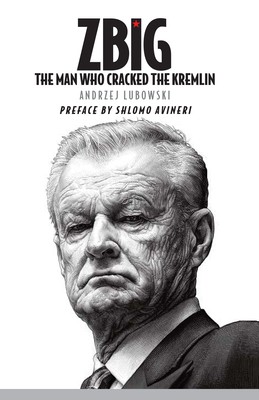
- We will send in 10–14 business days.
- Author: Andrzej Lubowski
- Publisher: OPEN ROAD DISTRIBUTION
- ISBN-10: 148046130X
- ISBN-13: 9781480461307
- Format: 13.3 x 20.3 x 1.5 cm, minkšti viršeliai
- Language: English
- SAVE -10% with code: EXTRA
Reviews
Description
"Kissinger opted for a strategy of accommodation with Moscow, while Brzezinski, claiming that the very nature of Soviet ideology and policies prevents stability, sought strategies for undermining the Soviet system. . . . In retrospect, Brzezinski was proven right and Kissinger was wrong." --Shlomo Avineri in the preface Zbigniew Brzezinski, widely regarded as a key actor in the last half-century of American foreign policy, remains a high-profile commentator on current events and an influential critic of some policies of subsequent administrations. His intellect and eloquent wit have made him an irreplaceable and controversial part of the American scene. He continues to fascinate historians, journalists, and conspiracy theorists. This is not a conventional doorstop biography. Instead, Zbig focuses on Brzezinski's critical and underappreciated contribution to the collapse of the Soviet Union--his lifelong mission.
Utterly free of illusions about the nature of Communist power, Brzezinski advocated "peaceful engagement" as the best tactic for exploiting systemic Soviet vulnerabilities. His stand on human rights and his tutelage of and influence on President Jimmy Carter had a profound effect on the course of the Cold War.Zbig also compares Brzezinski with his Harvard rival, Henry Kissinger--a strong proponent of realpolitik. Brilliant as Kissinger is, he did little to change American perceptions of the world in a lasting way. Brzezinski did.
- Author: Andrzej Lubowski
- Publisher: OPEN ROAD DISTRIBUTION
- ISBN-10: 148046130X
- ISBN-13: 9781480461307
- Format: 13.3 x 20.3 x 1.5 cm, minkšti viršeliai
- Language: English English
"Kissinger opted for a strategy of accommodation with Moscow, while Brzezinski, claiming that the very nature of Soviet ideology and policies prevents stability, sought strategies for undermining the Soviet system. . . . In retrospect, Brzezinski was proven right and Kissinger was wrong." --Shlomo Avineri in the preface Zbigniew Brzezinski, widely regarded as a key actor in the last half-century of American foreign policy, remains a high-profile commentator on current events and an influential critic of some policies of subsequent administrations. His intellect and eloquent wit have made him an irreplaceable and controversial part of the American scene. He continues to fascinate historians, journalists, and conspiracy theorists. This is not a conventional doorstop biography. Instead, Zbig focuses on Brzezinski's critical and underappreciated contribution to the collapse of the Soviet Union--his lifelong mission.
Utterly free of illusions about the nature of Communist power, Brzezinski advocated "peaceful engagement" as the best tactic for exploiting systemic Soviet vulnerabilities. His stand on human rights and his tutelage of and influence on President Jimmy Carter had a profound effect on the course of the Cold War.Zbig also compares Brzezinski with his Harvard rival, Henry Kissinger--a strong proponent of realpolitik. Brilliant as Kissinger is, he did little to change American perceptions of the world in a lasting way. Brzezinski did.


Reviews